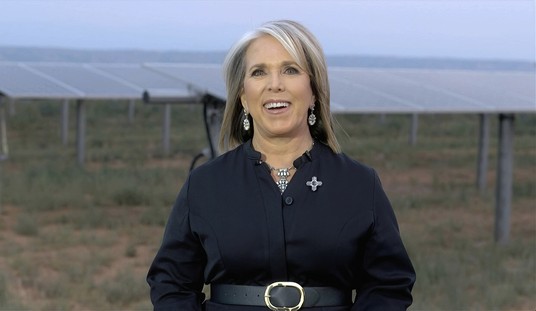College educations have grown outrageously expensive. But not every kid should go to college. Not every kid needs to go to college. And yet there seems to be some school of thought that every kid should go to college, and that's just not true.
There are two factors at play here: A lack of emphasis on the trades, and a bloated, useless university system offering meaningless 'Underwater Ethnic Dog-Polishing Studies' degrees. In short, college has, for many kids, become a waste of time and money.
In a recent opinion piece in the New York Post, John Stossel wrote:
It’s August. Many young people head off to college.
This year, fortunately, fewer will go.
I say “fortunately” because college is now an overpriced scam.
Overpriced because normal incentives to be frugal and make smart judgments about who should go to college were thrown out when the federal government took over granting student loans.
Why?
Because our government basically vomits money at everyone who applies.
If private lenders gave out the loans, they’d look at whether they were likely to be paid back.
They’d ask questions like: “What will you study? You really think majoring in dance will lead to a job that will pay you enough to allow you to pay us back?”
Government rarely asks these questions.
Bureaucrats throw money at students. Many don’t benefit.
Many shouldn’t even be going to college.
Privatizing student loans would go a long way toward solving this problem, as I've written in the past. But there's a simpler solution, one that might be able to actually be put into place; it would take two actions. First, make student loans dischargeable in bankruptcy. Second, make every university co-sign every student loan for every student attending their institution. Do this, and watch the crap degrees dissolve away overnight. This is a much more practical way to deal with the student loan (and the useless "Studies" degree) issue than just abrogating hundreds of years of contract law to hand-wave away student debt, then sticking the taxpayers with the check.
Not to mention that the universities themselves could do a lot to reduce costs. The purpose, after all, of any education system is to provide young people with marketable skills. It's unclear how some of the fancy amenities some universities offer further that goal. For example:
- Kenyon College, in Gambier, Ohio (tuition, room, and board $68,440/year) offers an unlimited, all-you-can-eat dining hall.
- High Point University in High Point, North Carolina (tuition, room, and board $49,248/year) offers a luxury steak house on campus.
- Ohio University in Athens, Ohio (tuition, room, and board $34,622/year) offers each student a personalized birthday cake every year.
- University of Missouri in Columbia, Missouri (tuition, room, and board $37,828/year) offers a complete recreation center.
It's baffling as to how all these expensive perks further the goal of providing these students with marketable skills.
When I attended the University of Northern Iowa in the mid-Eighties, my tuition was around $1,400 a year. That's about $4,000 in today's money. For the 2023-2024 academic year, my alma mater is now getting just under $40,000 per year. Even with the recent runaway inflation, one can easily see how college costs have inflated far, far beyond the rest of the economy. And why? Because government keeps that higher-ed gravy train rolling.
The government needs to be removed from the financing of education. Whatever government subsidizes - be it education, electric cars, or ethanol - goes up in price. You can count on that, as surely as you can count on the sun coming up in the East.
But there's a larger problem, and that's the idea that "every kid deserves a college education." That's just stupid. Not only are plenty of young people not suited for higher education, either for reasons of temperament, intelligence, ambition, or a host of other reasons but there are many, many vital roles in society that are filled by non-college types.
Tradesmen, for example. You don’t need a college education to be a carpenter, plumber, or electrician, and those are stable, solid, respectable jobs that require skill and brains – and pay pretty damn well. Just look at what wages accomplished welders are bringing down right now. But of late, American education has downplayed or downright ignored the trades in too many places.
Another anecdote from my own past: The Midwestern small-town high school I attended in the late Seventies had some great occupational programs. The school had a complete auto shop, where students could work all three years developing skills as auto mechanics. There was a complete wood shop, as well as a complete metal shop. I had several friends who, after high school, were hired on in local garages and car dealerships as mechanics.
Another good friend, after three years in the metal shop program, was hired as an apprentice machinist, a trade he has worked at now for over 40 years. I knew a couple of others who landed jobs with construction companies after three years of wood shop. The trades program in that school had a good reputation, and none of the kids coming out of that school had trouble landing good-paying jobs in the late Seventies and early Eighties, at a time when the economy wasn't exactly going great guns.
It's been said before, but it merits saying again: The purpose - the only purpose - of any educational institution is to provide young people with marketable skills. That's all. Anything that doesn't further that goal needs to be stripped away. Then, and only then, will the cost of education return to something approaching sanity. With that, and a re-emphasis on the trades, the entire system might just get the reboot it needs.













